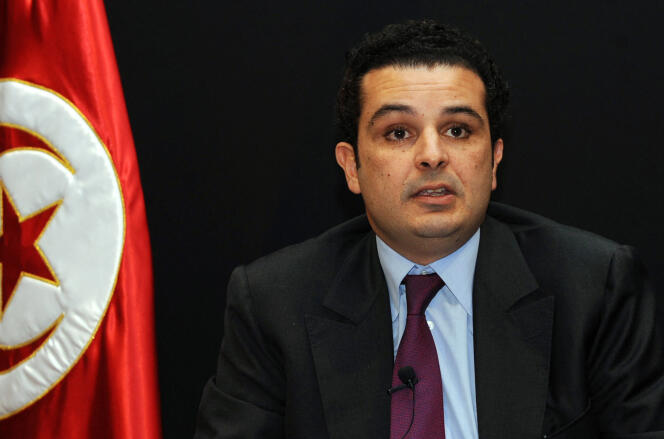In Tunisia, the noose is tightening on businessmen, with a new wave of arrests which targeted former relatives of President Zine El-Abidine Ben Ali, overthrown in 2011 after twenty-three years at the head of the country. The latest arrests to date are those of Marouane Mabrouk, former son-in-law of the deposed president, and Abderrahim Zouari, former minister of transport. Both were placed in police custody on Tuesday November 7, a symbolic date since it coincides with the anniversary of Mr. Ben Ali’s coup d’état, thirty-six years earlier.
With his two brothers, Marouane Mabrouk, 51, owns companies that operate in multiple sectors, including Orange Tunisia. Suspected of “illegal management of confiscated property”, he has been in legal turmoil since March 2011, when a part of his property was confiscated and his assets in Europe frozen. In January 2019, his lawyers obtained the lifting of the freezing of his assets. They are still in discussions with the State, which is demanding payment of alleged debts, according to Me Lamjed Nagati, interviewed by IFM radio.
Abderrahim Zouari is for his part accused of having taken advantage of his position within the framework of a public contract, according to statements by Mohamed Zitouna, spokesperson for the court of first instance of Tunis, to various media. At least two other businessmen were also taken into custody on Thursday and Friday for financial crimes, the economic and financial judicial center said.
“Everyone is afraid”
In the business world, these arrests are not surprising. Since the incarceration in February of Kamel Eltaïef, a very influential businessman in political circles and who was for a long time Ben Ali’s eminence grise – he has been accused, along with opponents of the regime, of “plotting against the security of the ‘State’ – entrepreneurs and investors prefer to keep a low profile. “Everyone is afraid, many people are thinking of leaving, worries a businesswoman on condition of anonymity. Kaïs Saïed is bringing the country’s economy to its knees. »
Following his coup, on July 25, 2021, the Tunisian president continued to accuse businessmen of being at the origin of the serious economic crisis that the country is experiencing, affirming that the galloping inflation (which exceeds 15% for food products since the start of the year) and recurring shortages of basic products subsidized by the State (such as semolina, rice, bread or pasta) are the fact speculative behavior.
On March 21, 2022, a decree-law penalizing with ten years of imprisonment any behavior aimed at influencing or disrupting the supply of markets by fraudulent means was also promulgated to combat these alleged speculations. But this legislation, deemed repressive by several civil society organizations, including Amnesty International, has had no impact on the economic situation.
Risk of “collapse”
At the same period, Kaïs Saïed launched his commission to “criminal reconciliation” aimed at inciting businessmen and politicians suspected of having “ robbed » money to pay off their supposed debts to avoid legal proceedings. Based on the preliminary report of the commission set up following the revolution to assess and investigate the “ill-gotten goods”, the head of state assured, on July 28, 2021, that 13.5 billion dinars (around 4 billion euros) should be “returned to the people”. Since then, only a few tens of millions of dinars have been officially recovered by the State in this context.
Kaïs Saïed nevertheless claims to be counting on the raising of significant funds. In April, he rejected the conditions of a rescue plan of 1.9 billion dollars (nearly 1.8 billion euros) discussed for several months between Tunisia and the International Monetary Fund (IMF), raising fears a risk of” collapse “ economic expressed in particular by the European Union (EU) and rating agencies. “ The alternative is that we must rely on ourselves,” he declared, notably highlighting his criminal reconciliation project.
Videos
Le Monde Afrique on Youtube
Every week, videos to understand the news on the continent
Look
Since then, legal proceedings in the business and banking sectors have multiplied, dozens of people have been banned from traveling and political opponents have been accused of fueling speculation. with the aim of destabilizing power, while the economic crisis only grows.
